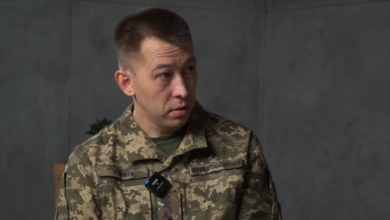We dream of living with Ukraine and for Ukraine: an exclusive interview with the head of the Central Union of Ukrainians in Germany
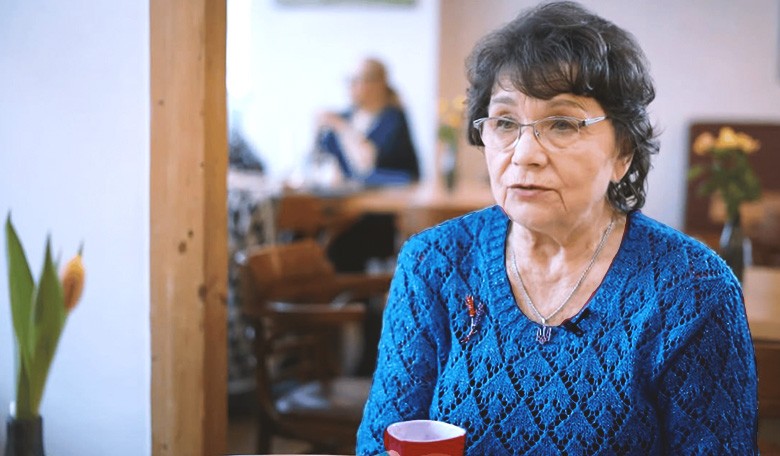
For centuries, historical events have forced peoples to migrate, and Ukrainians are no exception. The first waves of displacement of Ukrainians began at the end of the 19th century and practically did not end due to revolutions, famine, wars and persecution. By the start of the Russian-Ukrainian war in 2022, sociologists called up to 7 million Ukrainian migrants in the Western world, and more than 12 million in the CIS. With the war, these numbers increased significantly. Fleeing to foreign lands, the majority of Ukrainians did not lose their roots, banding together and preserving their language and culture.
In many countries, they created Ukrainian communities, one of which was founded in Germany. The Central Union of Ukrainians in Germany has been operating in the country’s capital for about 18 years – the oldest association of the Ukrainian community in Germany, whose constant leader is Mrs. Lyudmila Mlosh. In an exclusive interview, she told IA “FACT” about the Union’s activities, how Ukrainians live abroad and how they manage to preserve their Ukrainian identity.
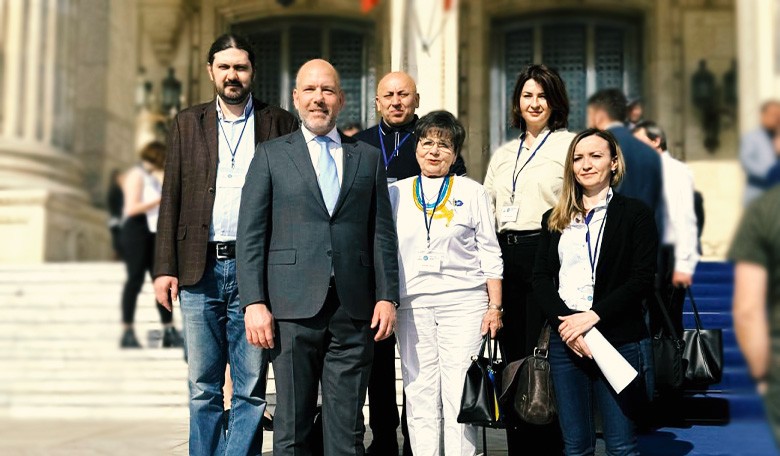
Ms. Lyudmila, tell us about yourself and how the process of creating the Central Union of Ukrainians in Germany, which will celebrate its “coming of age” next year, went.
Yes, next year we will celebrate our “coming of age”. In the distant 90s, I came to socialist Germany with my military husband. In the beginning, everything seemed interesting, but the lack of communication was tiring. Once I met a German family, which helped me a lot to adapt, besides, my school knowledge of German came in handy, but the longing for Ukrainian did not go away. Over a period of time, I already had acquaintances of Ukrainians who had previously left for Germany and also longed for a Ukrainian circle. Since 1999, we have identified ourselves as the Ukrainian Cultural Association, which at that time actively cooperated with the Consulate of Ukraine in Germany and gathered together to celebrate and honor Ukrainian holidays and, of course, communicate with each other. Over time, we expanded, and on June 26, 2006, we already submitted documents for registration to the German authorities of the Central Union of Ukrainians in Germany.
We received official documents for the activity only six months later – on January 16, 2007. I had a desire for wider acquaintances and meetings. There was no Ukrainian church at that time, so I was lucky and found a Greek Catholic one. In 1999, I met Father Schröter, he is German by origin, but he accepted us as family. And Germans sang in Ukrainian in this church, and I joined this testimony. Later, churchmen offered me to lead the choir, but I refused, because I do not have a musical education.
Thus, since 2007, we actively started working with German organizations, and also continued to look for further connections with Ukrainians and Ukrainian representations in Germany (there were almost none at that time…). In particular, with the embassy that was moved to Berlin as the capital in 2001. At that time, the ambassador from Ukraine was Anatoly Ponomarenko. This is how we actively started our activities, which involved willing Ukrainians in Germany to our organization, to participate in various events for cultural and state holidays.
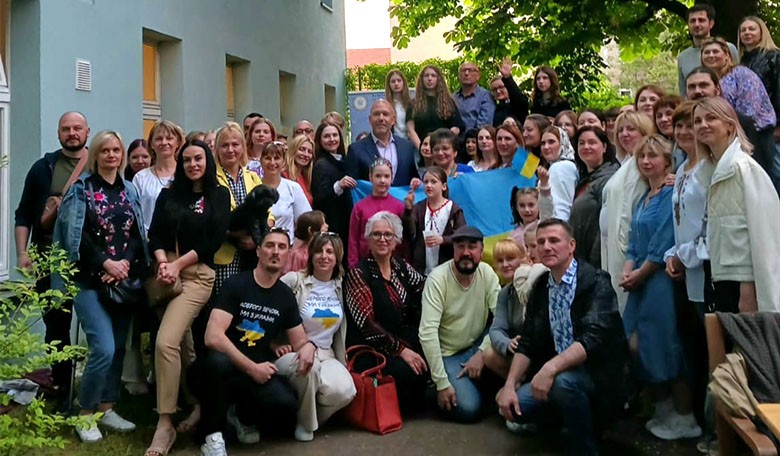
In August 2007, I became a member of the World Congress of Ukrainians at CSNU, to which we were invited by its president, Askold Lozynskyi, and we participated in the events of the SCU every year. In 2008, the World Congress of Ukrainians organized a global action: “Light a memorial candle, “Ukraine remembers – the world recognizes”, where our Union also joined this action. In Germany, we took over the candle from Poland, confirming that we will develop the theme of the Holodomor and we will tell about him so that Germany and the world recognize the Holodomor in Ukraine in 1932-33 as genocide.
Unfortunately, Ukrainians at that time were identified by German society as Russians – these are all remnants of the Soviet Union. Our Union tried to prove that Ukrainians are a separate and free nation. We organized many joint excursions and maintained constant contacts with Ukrainians from Ukraine. Today, out of 16 German states, we have in our ranks Ukrainians from 12 states, in particular from Hamburg, Frankfurt am Main, Hesse, Königs-Wusterhausen…
Currently, Germany has the largest number of Ukrainian refugees. How do you cooperate with them, how do you help?
Yes, many Ukrainians came to Germany. Currently, there are 1,650,000 million of them. Berlin has accepted our compatriots the most and we are very grateful to the German authorities for such support. At the beginning of the war, we were found and asked for various help. In two years, the Central Union of Ukrainians in Germany sent 1 million euros of aid to Ukraine. We continue to help in the future by sending many necessary items for military hospitals and supplies for the rehabilitation of soldiers.
Our activities are also active at the educational level. There are many teachers among the refugees, the large number of arrived children requires attention to them and development in all directions. So, now we work a lot with children and experienced teachers work with them. We are trying to turn my previous plan to organize a Ukrainian school into reality. In October 2022, our Union organized the first Ukrainian children’s center “Bedryk” in Berlin, where children not only learn the Ukrainian language and culture, but also get the first knowledge of the German language, that is, we prepare them for school. Now we have created a project for which we have support – two groups of teenagers: from 10 to 13 years old, and from 14 to 16 years old – this is a theater group where children themselves write plays and create theatrical performances. I am a fashion designer by profession. Therefore, in my free time from my “presidential” job, I design modern clothes with elements of Ukrainian embroidery.
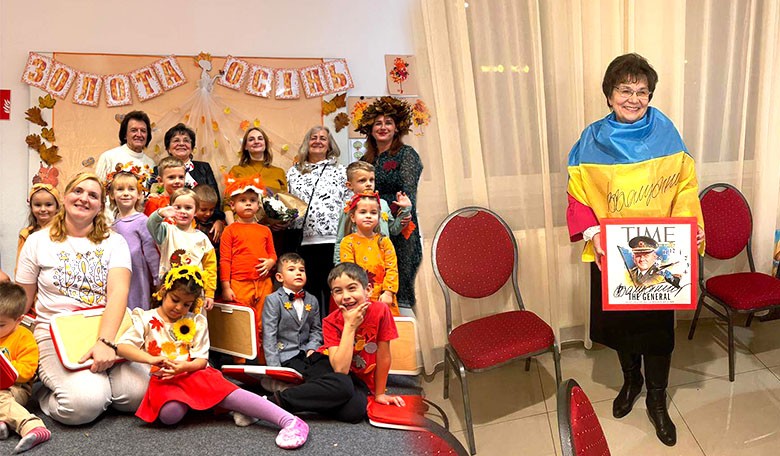
What questions and stories did our compatriots address to the Union? Which ones impressed you the most?
The biggest problem in Berlin is the search for housing – in fact, we were approached with this as well. In the beginning, we helped a lot with document translations. Now most of the refugees have started to learn the language themselves, so there are fewer appeals.
As for the stories, I cannot single out a single story, because each of the stories is special and difficult. Teachers, workers in the sphere of everyday life, culture, and there are also entrepreneurs have joined our community. One of the families came from Energodar, which had a good business in the city. After the occupation, she received only photos with destroyed premises and broken windows and property stolen by the occupiers. There are many refugees from Luhansk, Donetsk regions, Kryvyi Rih and other cities who were left with nothing… There are many such stories and each one hurts me. I want to help everyone.
The union tries to involve them in communication, we hold cultural events together, which give us energy and strength to live and believe in Ukraine.
By the way, the important event of the opening of the commemorative plaque to Lesya Ukrainka at Johannisstrasse, 11, Berlin-Mitte in Berlin in 2010 belongs to our Union. In 1899, Lesya Ukrainka lived and received treatment in Berlin at this address. The board was created by engraver Vadym Holoborodov. We plan to open a plaque to Taras Shevchenko, we have already made a portrait of T. Shevchenko and a place, but we are waiting for official confirmation from the German authorities. By the way, I have a personal thank you from T. Shevchenko’s great-granddaughter by her sister Kateryna, a writer, for her personal activities in preserving the historical heritage of the great Ukrainian poet.
I would also like to add that we conduct trainings on various topics, including psychological ones. They are led by a qualified psychologist, Olena Lysenko, twice a month throughout the war – from the firm Ipso, which provides psychological consultations. Before Easter, we invite those who wish to paint Easter eggs.
What help awaits Ukrainians who are forced to flee from Ukraine? Has it changed compared to the first wave of refugees in 2022?
Since the beginning of the war, Germany has accepted many Ukrainian refugees and helped them to adapt financially. In the future, refugees receive this assistance by learning the language. After obtaining a certain level of German, refugees are offered to study, retrain and work. Since social assistance from the state is not sufficient for a full existence, I note that in Germany this assistance is one of the largest and most stable in Europe. This year, the rules for refugees are slowly changing and they are forced to look for jobs more actively and provide for their families on their own. In addition, Germany is full of refugees and some countries no longer accept Ukrainians. Therefore, before going to Germany, it is advisable to make sure which country still accepts Ukrainians. In April, a debate began, which has not yet been officially confirmed, that the cards that will receive social assistance will be able to work only as a payment document in stores. Withdrawals will be prohibited, but we are waiting for more reliable information.
What kind of relations does the Union maintain with Ukraine now?
We live with Ukraine and maintain close ties with it. For example, we cooperate with the “Ukraine-world” foundation, where the president is Mr. Mykola Zhulynskyi, the secretary is Alla Kendzera, from my native Volyn. We also have contacts with the “STARE MISTO LUTSK” Charitable Foundation, with the Volyn State University, in particular, candidate of philological sciences Tetyana Danyliuk-Tereshchuk, doctors of philological sciences Maria Moklitsa and Serhiy Romanov, deputy of the Verkhovna Rada Iryna Konstankevich, and we also have direct contacts with military units, who defend Ukraine.
As I already mentioned, we helped the military a lot. Three cars were sent to the front with hygienic and medical supplies, mobile x-ray machines, and hospital beds. One Ukrainian-German family, which owns a large clothing store in Berlin, donated 25,000 euros of aid, part of which was sent to Ukraine, and part of which was distributed to refugees in Berlin. In the first months, two trucks with food and clothes were sent from us almost every day. The Stare Misto Charitable Foundation continues to help us transport humanitarian aid across the border. The other day we are expecting 100 wheelchairs, which we will send to Ukraine.
I also recently returned from Bucharest, where the World Congress of Ukrainians was held. The result of the meeting was a joint statement to the leaders of countries, churches, international humanitarian and human rights organizations and to all people of good will with a call to make all possible efforts for the fastest release of the defenders of Mariupol, who have been in Russian prisons for 2 years, and all Ukrainian prisoners , military and civilian.
Your dreams and plans for the organization? How do you see the Union in the future?
I want our organization to preserve its identity, for us Ukrainians to unite in the name of Ukraine and for Ukraine, to help each other as much as possible. I would like a Ukrainian school to be opened. There are many youth organizations – it would be good if young people tried to protect our assets. The Central Union of Ukrainians in Germany has its own archive and library, which includes translations of the German works of Shevchenko, Lesya Ukrainka, and Heinrich Heine into Ukrainian. The union dreams of living with Ukraine and for Ukraine. And my personal dreams are to return to my native Ukraine.
Olena Revina




